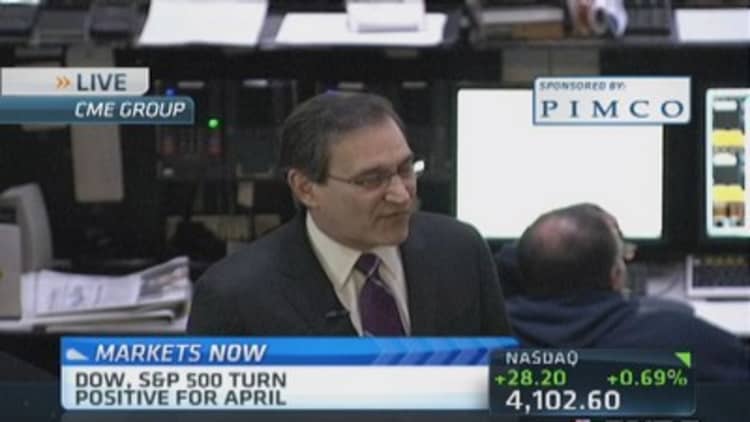Apple wowed investors last week with forecast-beating earnings that managed to boost optimism in asset markets around the world.
The company impressed markets again this Tuesday with the launch of a $12 billion bond deal. The issue was heavily oversubscribed—reports suggest demand reached the $40 million mark—and coincided with the anniversary of Apple's 2013 debut issue, launched successfully before fixed income markets sold off.
Nonetheless, one fixed-income strategist was critical on Wednesday.
"Past performance is not a guide to the future. I want to see the evidence, the proofs, and the mitigants to make sure I'm going to get my cash back. Event risk can sink the credit of even the top names," Bill Blain, a senior fixed income broker at Mint Partners, a leading London agency brokerage, said in a morning note.
"AA+ Apple today might be Ba1 Sony next year," he added, in reference to the Cupertino, Calif.-based company's near-immaculate rating from rating agencies.

Early on Wednesday, Apple 10-year securities yielded around 77 basis points above U.S. Treasurys, and market chatter focused on a possible euro-denominated issue in the near-future.
Read MoreTrack Treasury market live
Meanwhile, equity investors seemed to have rediscovered their love for Apple, with shares trading near $595 early Wednesday on Wall Street. (Click here for the latest quote.) Plus, Goldman Sachs raised its price target on the stock to $635 from $620 on Wednesday, a clear signal Apple may push U.S. markets higher this year.
But whereas equity investors have been cheered by dividend payments and an aggressive stock buyback program, fixed income players are left wanting more, according to Blain. He said Apple needed to prove it could innovate over the long-term.
"If I am going to buy a long credit: I want to know cash will be there when redemption day comes around," he said.
"If it was something like a railway line or a manufacturer, I'd probably accept long-dated debt by a well-run firm, on the basis it's a long-term business and the assets will be there in 10 to 30 years' time.
"In Apple's case, I have to look at the history of the sector. It's a fast moving rise-and-fall bear pit. The firms that led the world making tech stuff 20 years ago don't lead today."
—By CNBC's Matt Clinch


